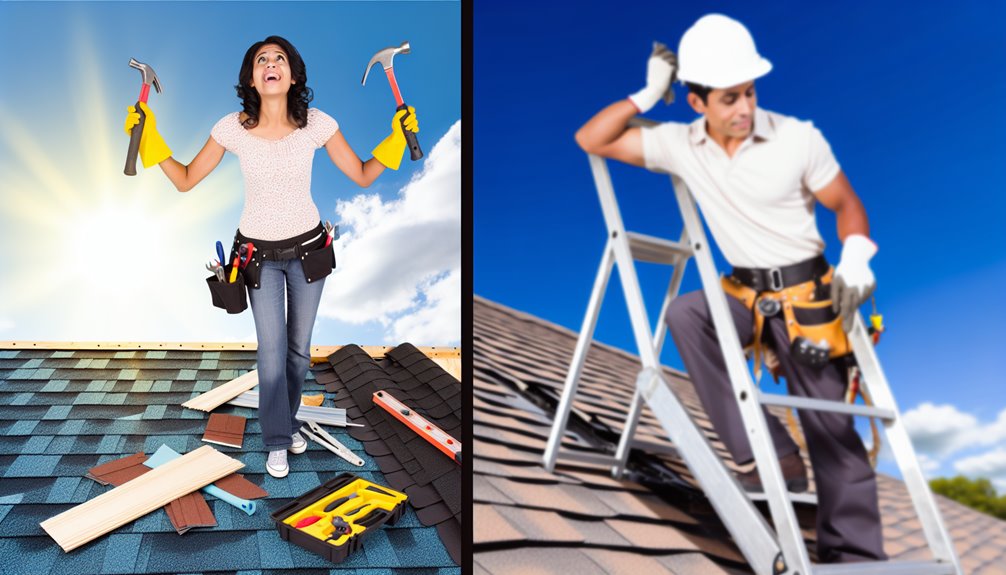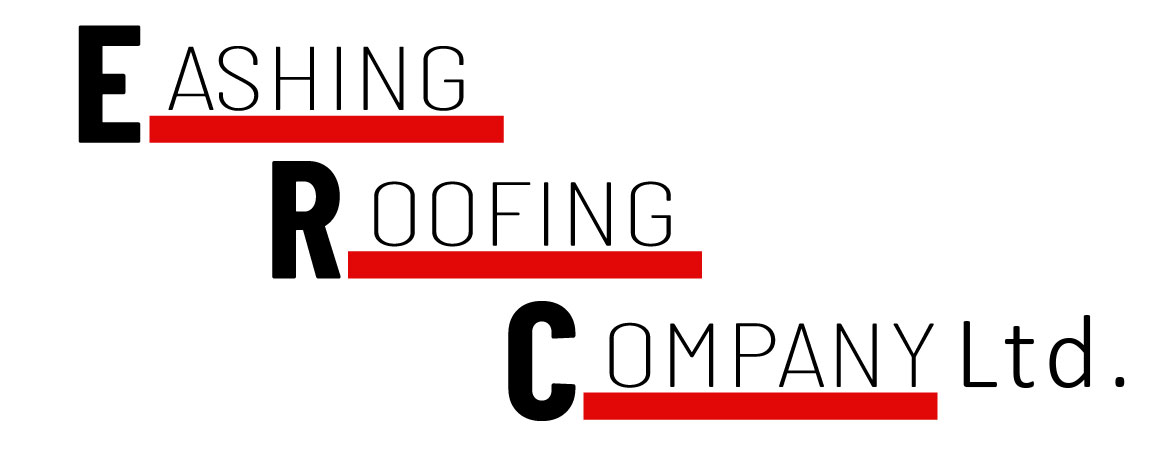DIY Roof Repairs vs. Hiring a Professional: What’s Best?

When it comes to roof repairs, you’ve got a tough decision ahead: do you tackle the job yourself or hire a professional? While DIY repairs might seem like a cost-effective solution, you need to evaluate the skills, tools, and time involved, not to mention the potential for costly mistakes. On the flip side, professionals offer their expertise and warranties, but at a price. As you weigh these options, think about what factors truly matter to you and what could be at stake if you make the wrong choice.
Cost Analysis of Repairs
When considering your roof repair options, the cost can be a significant factor in your decision-making process. You’ll need to evaluate both material costs and potential warranty implications.
If you decide to go the DIY route, you might save on labor costs, but keep in mind that purchasing quality materials can still add up. For instance, shingles, underlayment, and flashing can represent a considerable upfront investment.
On the other hand, hiring a professional can seem more expensive initially, but it often includes warranties that protect your investment. A contractor’s warranty can cover both materials and workmanship, providing peace of mind that DIY repairs can’t always guarantee. If something goes wrong, you won’t have to shoulder the expenses alone.
Furthermore, consider long-term costs. A poorly executed DIY repair might lead to more extensive issues down the line, resulting in higher repair bills.
Ultimately, weigh the upfront savings against potential future costs and warranty protections. By analyzing these factors, you’ll be better equipped to make a sound financial decision regarding your roof repairs.
Skills and Tools Required
Typically, tackling roof repairs on your own requires a specific set of skills and tools. First, you need a solid understanding of roofing materials, such as shingles, tiles, or metal sheets, and how they function. Familiarity with various repair techniques is essential, whether you’re patching a leak or replacing an entire section of your roof.
You’ll also need important tools like a ladder, safety harness, roofing nail gun, and a pry bar. A utility knife, measuring tape, and a hammer often come in handy too. If you’re dealing with larger repairs, a circular saw and roofing shears might be necessary.
Moreover, knowing how to properly measure and cut materials is critical to guarantee a snug fit. You should also understand how to apply sealants effectively to prevent future leaks.
Lastly, experience with basic construction principles will help you assess the overall condition of your roof and make informed decisions on repairs. If you feel confident in these areas, you might save money by doing the work yourself, but if any of this sounds intimidating, it might be worth considering hiring a professional.
Safety Considerations
Even with the right skills and tools, safety should be your top priority when tackling roof repairs.
First, make certain you’ve got the necessary fall protection in place. This includes using a sturdy ladder, harness, and safety guardrails if you’re working on a steep pitch. Don’t overlook the importance of having a buddy nearby to assist you. Having someone to spot you can be a lifesaver.
Next, consider the weather conditions before you start. Rain, wind, or extreme heat can make roof work dangerous. Wet surfaces can be slippery, while high winds can affect your balance. Check the forecast and choose a clear day for your repairs.
Additionally, wear appropriate gear, such as non-slip shoes and a hard hat. Protecting your head and feet can prevent serious injuries.
Quality and Longevity of Work
The quality and longevity of roof repairs can greatly differ between DIY efforts and hiring a professional. When you tackle a repair yourself, your choice of material can considerably impact the outcome. Without the industry knowledge that professionals possess, you might select lower-quality or incompatible materials, which could lead to quicker deterioration or failure.
On the other hand, hiring a professional guarantees that materials are chosen based on their suitability for your specific roof type and local climate conditions. Professionals often have access to higher-grade materials that may not be readily available to the average homeowner. This can enhance the durability and longevity of your roof.
Additionally, consider the warranty implications. Many professional roofing services offer warranties that protect you against defects in materials and workmanship.
If you choose DIY, you typically won’t have any warranty coverage, meaning if something goes wrong, you’ll bear the full financial burden of repairs. While DIY repairs can save money upfront, the potential for lower quality and lack of warranty could end up costing you more in the long run.
Time and Convenience Factors
When it comes to roof repairs, time and convenience play a significant role in your decision-making process. If you’ve got a busy schedule, tackling DIY repairs mightn’t be the best option. You’ll need to set aside time for research, gathering materials, and executing the work, which can often stretch over several weekends.
If you’re not experienced, this can lead to delays and even more problems down the line.
On the other hand, hiring a professional can greatly enhance your time efficiency. A skilled contractor can typically assess and address the issue much faster than you could on your own. They arrive equipped with the right tools and expertise, allowing them to complete the job promptly.
Plus, you won’t have to worry about taking time off from work or rearranging your life around the repairs.
Convenience factors also come into play; by hiring a professional, you’re freeing up your evenings and weekends for other important activities.
In the end, weighing your available time against the convenience of hiring an expert can help you make the right choice for your roof repair needs.
Frequently Asked Questions
What Types of Roofing Materials Are Easiest to Repair Yourself?
If you’re looking for easy roofing repairs, asphalt shingles and metal roofs are your best bets. Asphalt shingles are manageable for beginners, while metal roofs require some skill but are still relatively straightforward to fix.
How Do Weather Conditions Affect DIY Roof Repairs?
Weather conditions play an essential role in your DIY roof repairs. Seasonal impacts can make repairs tricky, while moisture concerns can lead to further damage. Timing your repairs wisely guarantees better results and minimizes complications.
What Common Mistakes Do DIY Roofers Make?
When tackling roof repairs, you might overlook safety precautions and proper tool selection. Common mistakes include insufficient ladder stability, using inappropriate tools, and ignoring weather conditions, which can lead to accidents or ineffective repairs.
Are There Local Regulations for DIY Roofing Projects?
Yes, there’re local regulations for DIY roofing projects. You need to check local building codes and safety regulations before starting. They guarantee your work meets standards and keeps you and your home safe during repairs.
How Can I Assess the Overall Condition of My Roof?
To assess your roof’s condition, follow these roof inspection tips: check for missing shingles, water stains, and granule loss. These roof damage indicators can help you determine if it’s time for repairs or replacement.
Conclusion
In the end, choosing between DIY roof repairs and hiring a professional really depends on your skills, budget, and the job’s complexity. While you might save money doing it yourself, consider the potential risks and future costs if things go wrong. On the flip side, a professional brings expertise and peace of mind, ensuring the work’s done right. Weigh your options carefully to make the best choice for your home’s needs and your comfort level.
